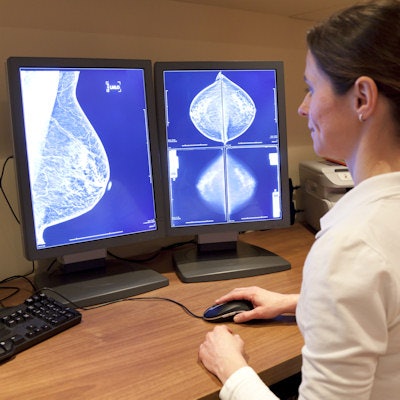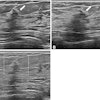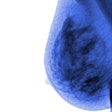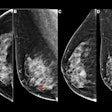
The U.S. Food and Drug Administration (FDA) has updated its mammography regulations to require reporting of breast density information by facilities, according to a March 9 statement by the administration.
The update will strengthen the FDA's oversight and enforcement of facilities, as well as help interpreting physicians improve their categorizing and assessment of mammograms, the agency said.
These updates amend regulations under the Mammography Quality Standards Act (MQSA) of 1992, which authorizes FDA oversight over mammography facilities. This includes overseeing facilities' accreditation, certification, annual inspections, and enforcement of standards to help ensure quality imaging and care.
Breast density is a known risk factor of breast cancer due to conventional screening mammography struggling to detect suspicious lesions in dense breast tissue. However, many women are not aware of this risk, and 12 states do not require some level of breast density notification after women receive a mammogram. Other states, meanwhile, have breast density reporting and education efforts that do not require facilities to notify women.
Dr. Hilary Marston, chief medical officer of the FDA, said the updated regulation represents the agency's "broader commitment to support innovation" to prevent, detect, and treat cancer.
"Since 1992, the FDA has worked to ensure patients have access to quality mammography," she said in the statement. "The impact of the Mammography Quality Standards Act on public health has been significant, including a steep decrease in the number of facilities that do not meet quality standards. This means that more women have access to consistent, quality mammography. We remain committed to advancing efforts to improve the health of women and strengthen the fight against breast cancer."
Recent legislative efforts spearheaded by health advocates and lawmakers have drawn attention to breast density. In December 2022, the "Find It Early Act" was introduced in Washington, DC, by U.S. Representative and House Appropriations Chair Rosa DeLauro (D-CT) and co-sponsor Brian Fitzpatrick (R-PA). The act would make sure that all health insurance plans cover screening and diagnostic mammograms, as well as supplemental imaging, with no cost-sharing.
The effort was also led by award-winning journalist Katie Couric, who revealed in 2022 that she had dense breasts after receiving treatment for her breast cancer, and JoAnn Pushkin, executive director of DenseBreast-Info.org.
Also, a bipartisan bill introduced February in Wisconsin would require insurance providers to provide supplemental breast cancer screenings. This expands on a 2018 law passed that requires medical facilities to give patients with dense breast tissue information about this risk factor.
The FDA's amendments are required to be implemented within 18 months. The administration said that "nearly all" certified mammography facilities continue to meet quality standards.
This latest update will increase the FDA's ability to communicate directly with patients and their healthcare providers in cases where facilities don't meet standards and don't adequately communicate with patients.
"This is intended to help ensure important information that could affect decisions about patient care, such as the potential need for further evaluation or a repeat mammogram, is communicated as completely as possible," the FDA said.
The update has been long in coming, Pushkin said in a statement released on March 9.
"It's been over 10 years since [we requested that] the Food and Drug Administration consider the requirement that women be informed about their breast density after their mammogram, and over 10 years since an FDA advisory committee agreed that women certainly should be," she said. "Too many patient 'density inform' advocates are no longer with us to join in an exhale of relief that all U.S. women will now be told about their breast density after their mammograms and that their potential tragedies -- of hidden cancers finally found when no longer early stage -- may be prevented."




















